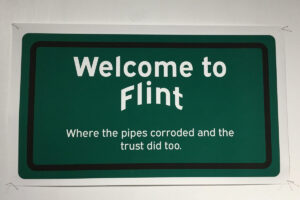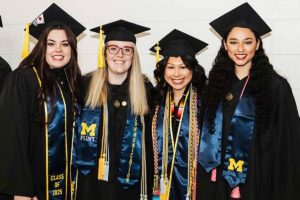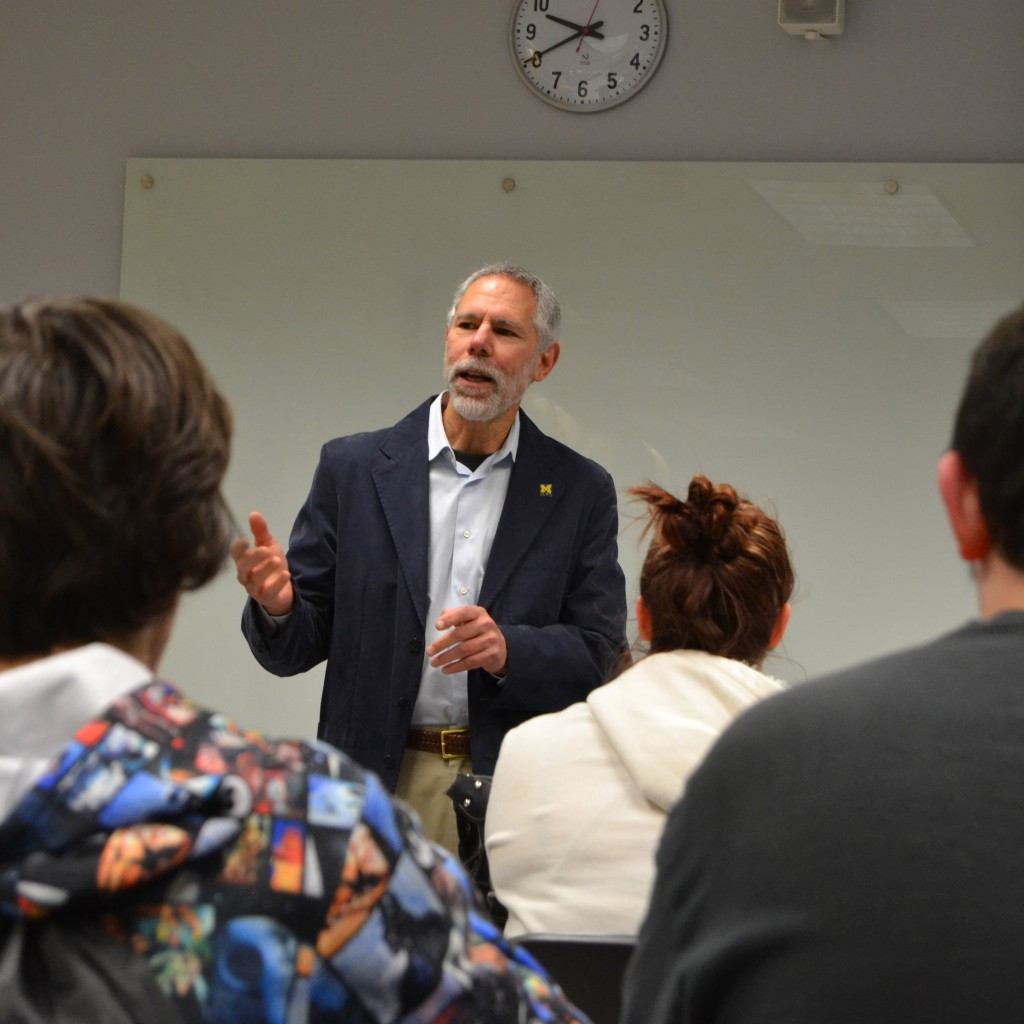
UM-Flint’s Secondary Teacher Certificate Program (TCP) has been undergoing a change in focus, moving away from more traditional models to one focused on place-based education. In this new approach, TCP students are spending more time connecting with diverse community populations through community- and school-based fieldwork and projects.
Tiffini Hurley, a current TCP candidate at UM-Flint, is student teaching at Bendle High School where her senior class is reading the novel The Jungle by Upton Sinclair. The book explores struggles of the working class in industrialized cities, including living conditions and work environments. To help her students better connect with the content and themes of the book, Hurley organized a day of activities outside of the classroom focused on “Understanding the Flint Water Crisis.”
When asked about her goals for the day, Hurley said, “I hoped that the students would gain perspective on what a community really looks like in times of hardship and what the need actually is in Flint. By doing this they can enact change in the world around them. Especially since they are about to graduate, I want to send them into the world with a sense of empowerment.”
Danielle De La Mare, one of Hurley’s TCP faculty members at UM-Flint, noted how thrilled she is that the place-based model is already a part of her student’s teaching process: “The work Tiffini has done with her students is nothing short of amazing! Few teachers, let alone student teachers, take on projects this extensive. Hopefully our new place-based teacher education program will inspire more of this in the future.”
Suzanne Knight, another TCP faculty member, added, “Tiffini is our first teacher candidate to do a full place-based project during student teaching. However, these projects are also largely collaborative. It took the efforts of her mentor teacher; two other teachers at Bendle High School (one English, one science); and Leyla Sanker and others in University Outreach.”
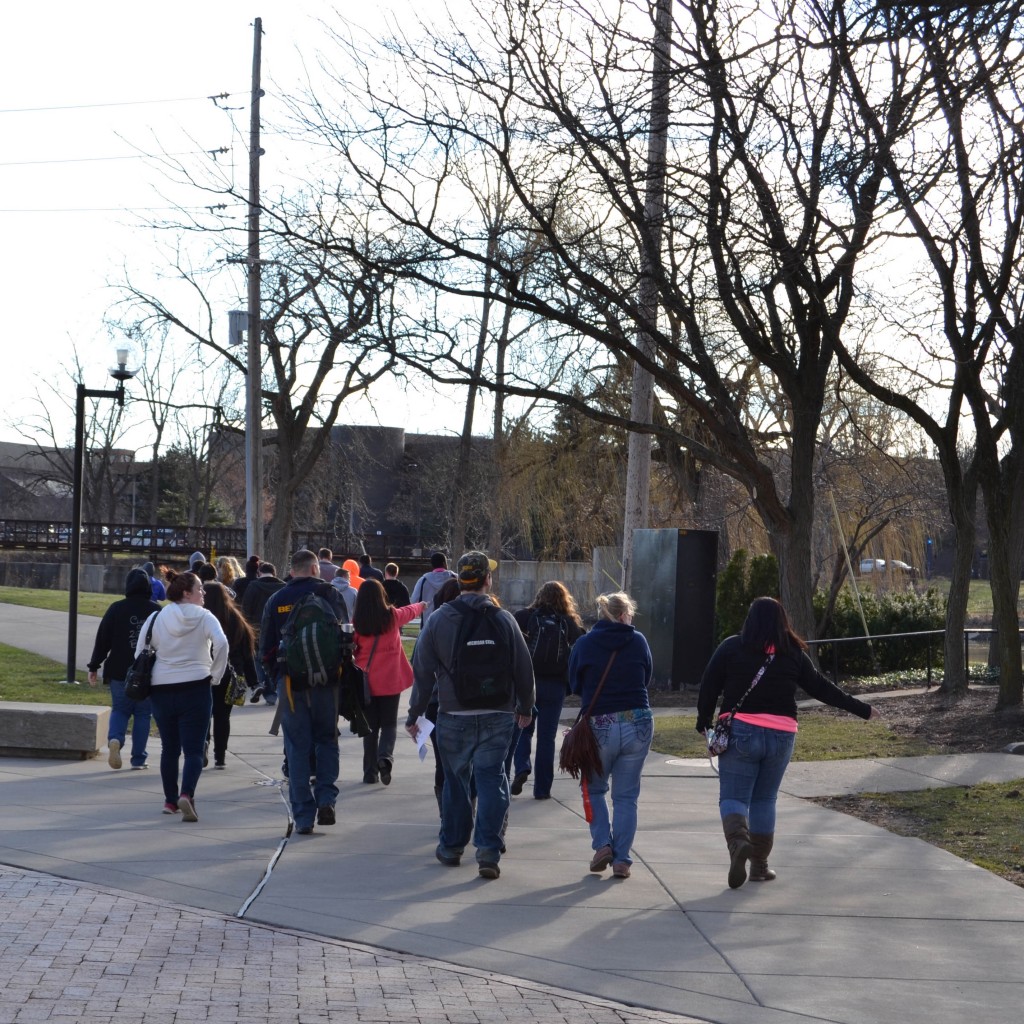
The Bendle students arrived at the Northbank Center in downtown Flint early on Friday, March 18. As a full group they listened to Jenny McArdle of the United Way of Genesee County discuss community needs and volunteer efforts as they related to the water crisis response. The high schoolers then split into three groups, organized by topic: Health and Human Impacts, Economic Impacts, and Environment and Infrastructure.
Health and Human Impacts
The first group was led by Ms. Erin Brown from Bendle and Kye Bright of UM-Flint’s University Outreach and AmeriCorps. From the Northbank Center Ballroom they headed to the Innovation Incubator on the building’s second floor.
Bright presented “Exploring the Water Crisis from a Resident’s Perspective,” focusing on politics, media, and the human impact of the situation. The group also discussed responding to the crisis at a neighborhood level.
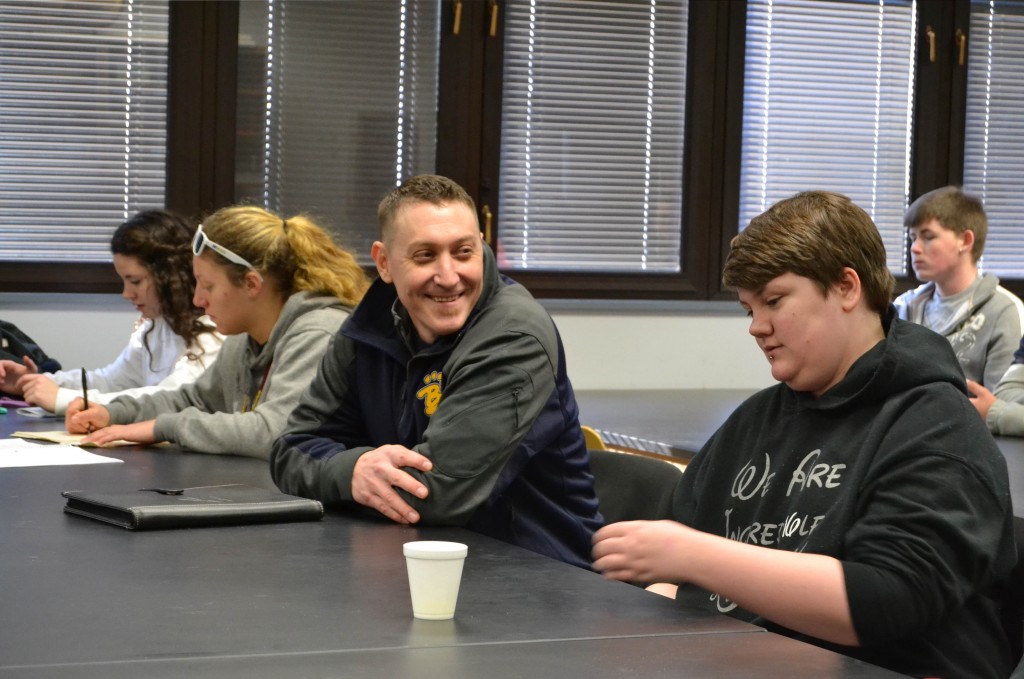
Economic Impacts
Tiffini Hurley led the second group, along with Sara McDonnell of UM-Flint Outreach.
Their first speaker was Janet Van Der Winkle, Executive Director of the Flint River Corridor Alliance (FRCA) and co-owner of Flint’s Tenacity Brewing.
From there the group made their way downtown to speak with local business owners and managers about their experiences and responses to the water crisis. The first stops were Blackstone’s Pub & Grill and 501 Bar & Grill. Each restaurant had their general manager on hand to speak to the students. The group then headed to the newly-opened Local Grocer where Franklin, a co-owner, discussed his business’ perspective on investing in local food systems and Michigan’s economy.
Environment and Infrastructure
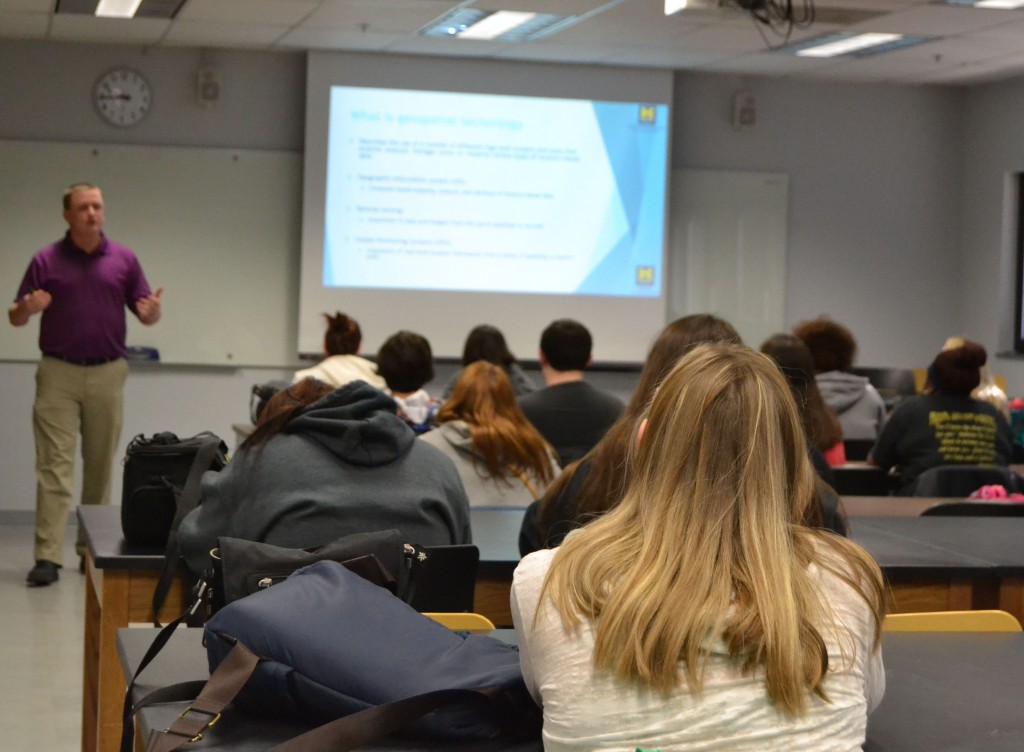
The third group walked across campus, and the Flint River, to the Department of Earth & Resource Science (ERS) in the Murchie Science Building. They were accompanied by their teachers Mr. Todd Barden and and Ms. Elizabeth Seavey, and Leyla Sanker of UM-Flint Outreach.
While in the ERS department, the students listened to Professor Marty Kaufman speak on lead and Flint’s infrastructure and Troy Rosencrants, Director of the UM-Flint GIS Center, who presented an introduction to geographic information systems and mapping the lead lines in Flint.
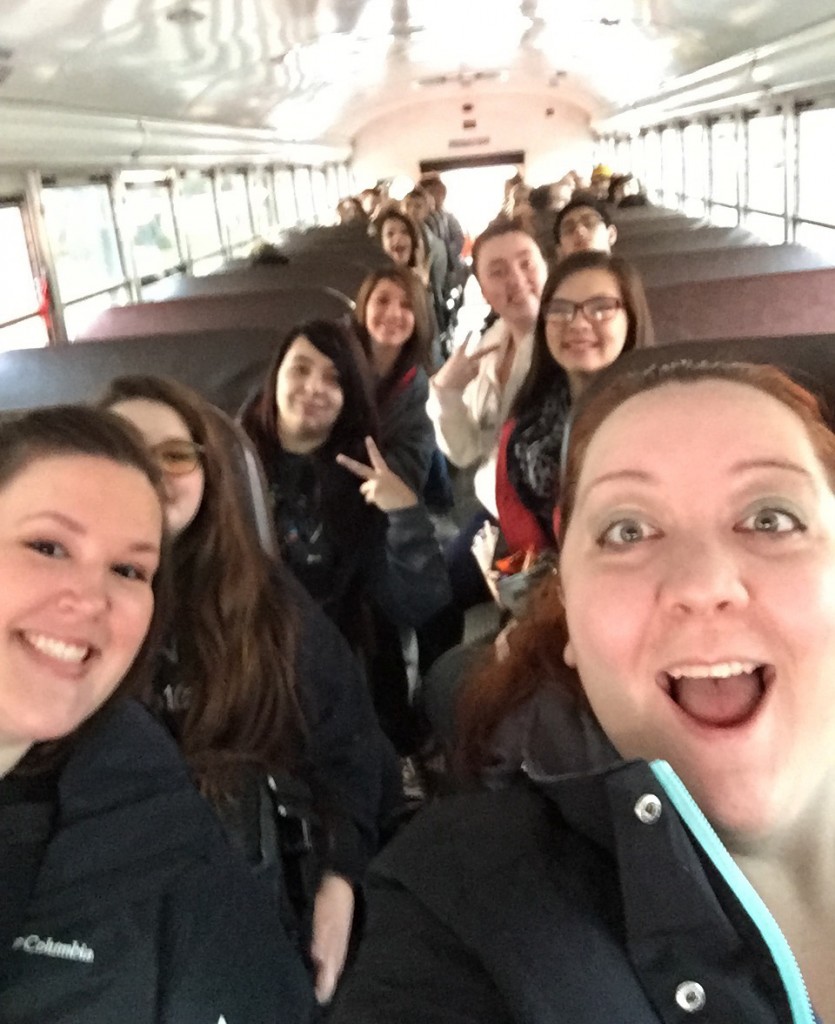
Late in the morning the students returned to Northbank Center for lunch, reflection, and group discussions. They also made plans for upcoming projects.
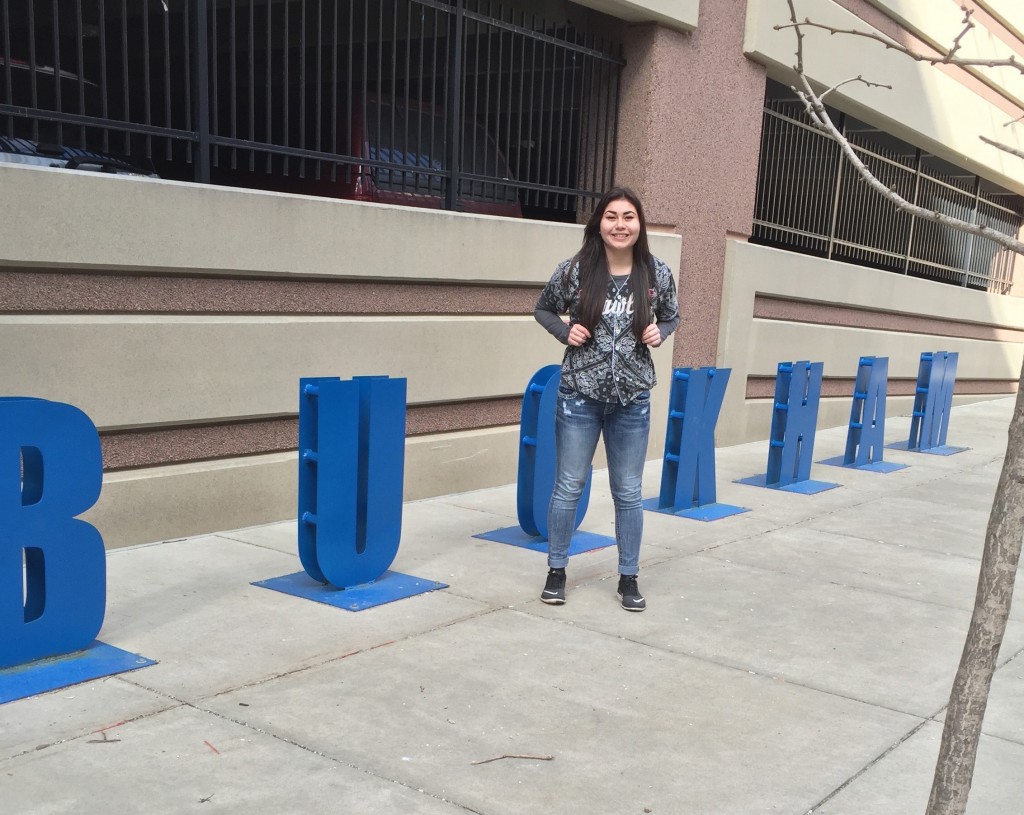
For more information on place-based education at UM-Flint, contact a member of the Secondary Teacher Certificate Program by visiting their website. For information on UM-Flint efforts in the community, contact University Outreach. For information on this specific project, please email Tiffini Hurley at tiffinih@umflint.edu.


